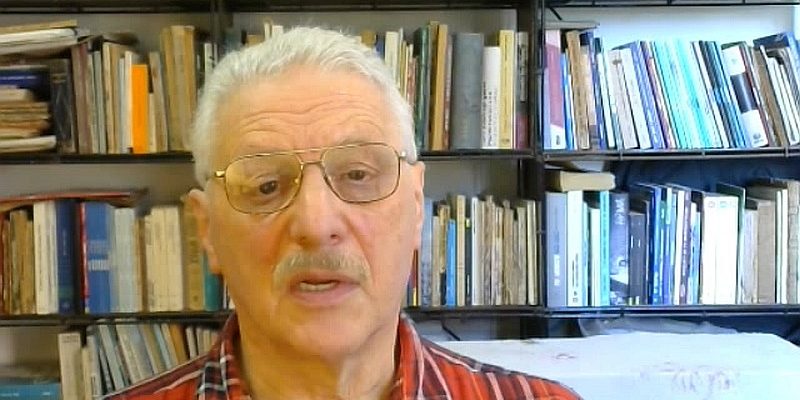On my first visit to Belgrade, I had the honour of participating in the act of resistance on 24 March 2001 against the sad regime that was born out of Serbia’s defeat against NATO.
Your people had been subjected to an infamous war. Those who have experienced these aggressions from the warm comfort of their desks may say that perhaps Yugoslavia could have sold its defeat at a much higher price.
But I am not one of those platoons that call for fighting to the last drop of blood, as long as it is someone else’s. I value resistance in defeat no less than the joy in victory.
During that visit, I have had the honour of meeting many fighters who are not defeated by defeat, of that lineage of indispensables of which Bertoldt Brecht spoke in a famous poem.
And among them all, no doubt none stands out more than the man we are honouring today.
Many will speak today about the life and deeds of Slobodan Milosevic. I leave it to them, to you, to speak.
I will confine myself to explaining who Slobodan Milosevic was for me, an Argentinean from Buenos Aires who could have spent his whole life without any idea of his existence.
Fortunately, that was not the case. And, among other privileges that life gave me, I had the enormous opportunity to meet him in a press interview that he offered us in that fateful 2001.
In that interview, in response to a question from me (which, I later learned, posed the same problem that Fidel Castro had posed to him), he explained why he was forced to surrender to the NATO forces, and named some particular person.
I avoid naming names today. Miserables deserve no mentioning during a hommage to their victims. But I do say that what Slobodan Milosevic explained to me was that at bottom, and basically, Serbia had been left alone.
In that answer I measured the courage of his life, the heroism of having fought for the people and the country he loved, and the ideals he stood for. I felt that he already knew that he would be alone for a long time, perhaps until he died. Which proved to be the case.
And I had the certainty that he would fight -even left alone- literally until his last breath, and the intuition that his enemies would try to assassinate him.
And suddenly I realised (I know this is going to make you laugh, but it is so) how Latin American, how Rioplatense he was, this Serbian president whom I had come to know in person.
When I returned to my country I told everyone: “Milosevic is the Solano Lopez of the Balkans”.
And those of you who have not at least read Galeano’s Open Veins of Latin America deserve to know who Francisco Solano López was. It is not an act of erudition, it is an act of self-knowledge. Knowing this South American hero will help you to give Slobodan Milosevic the dimension he has in your own lives, the history of Serbia and, far beyond, in the history of the Balkans and Europe as a whole.
Francisco Solano López was President of Paraguay. He died in March 1870, assassinated by soldiers of the Triple Alliance, a kind of NATO of Brazilian slavers and pro-British merchants from the River Plate Basin in South America. His murder was the last act of a horrendous and devastating war, one of the most atrocious Latin American genocides of the 19th century.
“I die with my country”, exclaimed Solano López when he was assassinated by a party of Brazilian soldiers and mercenaries (hah, they call them “contractors” nowadays). Almost the entire male population between the ages of 15 and 50 had already died defending Paraguay in a veritable genocide. They literally preferred to die following Solano López rather than see their homeland enslaved.
After the defeat, Paraguayan land, until then in the hands of peasants or the state, was divided up into large estates, many of them owned by Argentine, Uruguayan or Brazilian oligarchs, who introduced the equivalent of debt slavery. The lack of men forced women to introduce polygamy, the plague of backwardness. Incipient industrial concerns were torn down to the ground. The journalists and historians of the Triple Alliance tried to cover up the memory of Solano López with a mountain of slander. The hatred he aroused in them is still alive today.
But so does the love of the Paraguayan people and the immense respect of Argentines and Uruguayans. Because people often do not know where they are going, but they know very well where they come from. And they revere their heroic leaders as beacons that show them the way.
Such is the case with Slobodan Milosevic.
We do not give up. And you do not give up.
Our leaders are persecuted, imprisoned, assassinated, covered with infamous lies and slander.
We do not surrender. And you do not surrender.
We honour in the memory of that great patriot and revolutionary Slobodan Milosevic our own resilience, which is the resilience of our peoples.
A new world is dawning before our eyes. We see it being born. Somebody in the Far East has been smart enough to make the American bourgeoisie sell the rope with which it will be hanged. And we know that our enemies no longer have anything positive to give to the human race. So that that collective “somebody”, a collective to which Slobodan Milosevic certainly belongs, will reach victory.
That day, the whole of humankind will start to understand what kind of a man we are honoring today.
Nestor Gorojovsky
(Contribution to the International Conference MILOSEVIC – AGAINST NATO CRIMES, FOR A NEW WORLD)


